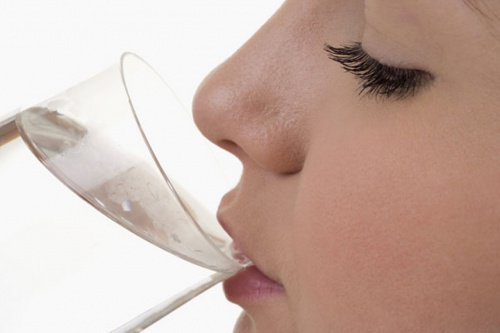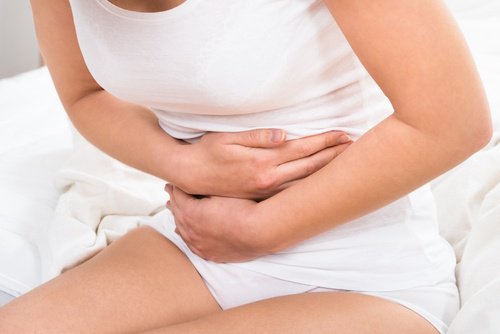8 Signs You're Not Drinking Enough Water

If you’re not dinking enough water, your body can suffer greatly. Pay attention to the signs of dehydration that we’ll explain in this article.
It’s estimated that around 70% of the human body is made up of water, and that’s why you can’t go for longer than a week without it before risking your life.
This vital liquid is important for the metabolic and catabolic reactions in the body, aside from being essential for healthy skin, hair, and nails.
The problem is that sometimes you don’t give your body the required daily amount of water, and as a result you can develop several physical and even mental disorders.
While thirst is the most obvious sign of dehydration, there are other strong signals that warn you when your fluid levels are dangerously low.
8 Signs You’re Not Drinking Enough Water
1. Changes in urination

A healthy person should urinate around six to seven times a day on average. However, this can vary from person to person, depending on the amount of liquid they consume throughout the day.
If you only need to urinate two to three times a day, it’s essential that you increase your consumption of water and if possible, consult a doctor.
Poor water consumption directly affects the health of your kidneys and can lead to other serious complications.
2. Regular headaches
Regular headaches can be the result of an imbalance in your bodily fluids.
Water is essential for maintaining proper blood flow and balancing your body’s inflammatory responses.
When you get a headache due to dehydration, the pain is commonly more intense when you move.
A person who doesn’t drink enough water might feel that tension whenever they try to move quickly or get a little exercise, such as going up or down stairs for example.
If you think that a lack of fluids is causing your headaches, it’s a good idea to drink water mixed with mineral salts.
Visit this article: 5 “weird” headache triggers
3. Dry mouth

Dry mouth is very common when your body doesn’t have enough fluid for the proper production of saliva.
The risk with this problem is that the pH of your mouth becomes imbalanced, potentially leading to infections in your oral cavity and throat.
If you have this condition it’s important to keep a bottle of water handy and use a lip moisturizer.
4. Changes in the color of your urine
A change in the color of your urine is always a red flag, especially when it’s accompanied by a strong odor.
When you’re not drinking enough water, your kidneys have trouble getting rid of toxins and this can drastically change the color of your urine.
If it’s dark or cloudy, you should consult a doctor to rule out chronic dehydration or kidney disease.
To resolve it, increase your water consumption gradually. Drinking several glasses of water all at the same time can cause other serious problems.
5. Fatigue

Lack of water prevents oxygen from getting to the cells of your body, leading to severe episodes of chronic fatigue.
Some people think they can fix that with a coffee or an energy drink, but this overloads your liver and can make things worse in the long term.
To avoid this, keep your body hydrated with a glass of warm water every morning.
6. Muscle cramps
Along with dehydration, not drinking enough water can alter your levels of electrolytes.
This means that your potassium, calcium, and magnesium levels are reduced, which causes muscle cramps and pain.
7. Constipation

Daily consumption of water is essential for keeping your intestines hydrated and preventing constipation.
If your fluid intake is low, your digestive system has difficulty expelling waste, causing it to remain in the colon.
To avoid this, it’s recommended that you drink six to eight glasses of water a day and eat fruits and vegetables that are rich in fiber.
See also: 8 top cures for constipation
8. Dry skin
To have hydrated, smooth skin, you need to do more than use topical creams and serums.
Your daily water intake prevents alterations in your natural production of oils, avoids dryness, and helps to eliminate toxins that accelerate aging.
If you notice that your skin isn’t producing oils, it’s a sign that you’re dehydrated and need to consume more water.
To conclude, many of your body’s functions depend on water intake. Not drinking enough water can cause undesirable reactions and disease.
It’s essential to tend to these symptoms of dehydration immediately to avoid the risk of developing more serious disorders.
This text is provided for informational purposes only and does not replace consultation with a professional. If in doubt, consult your specialist.








